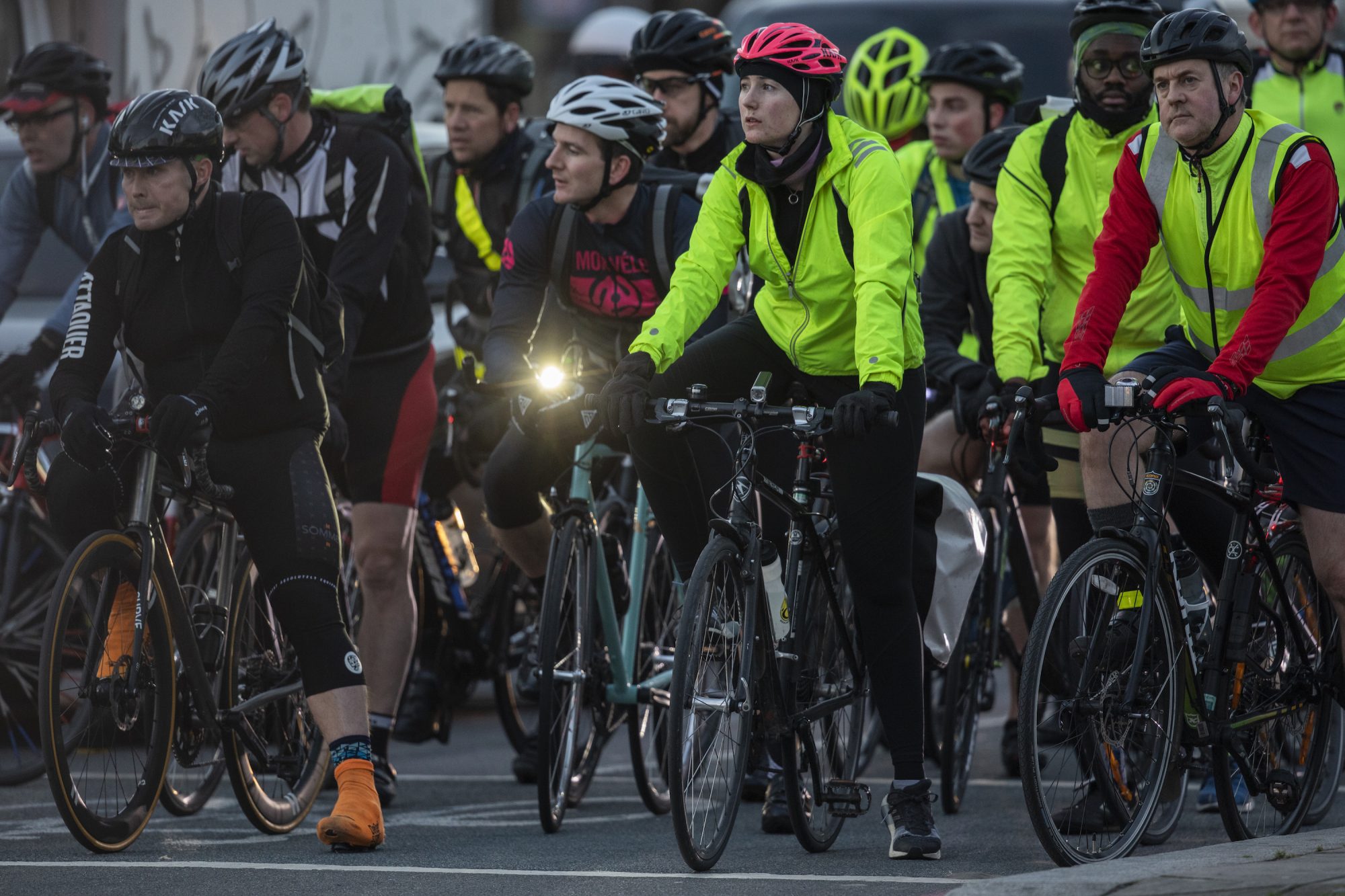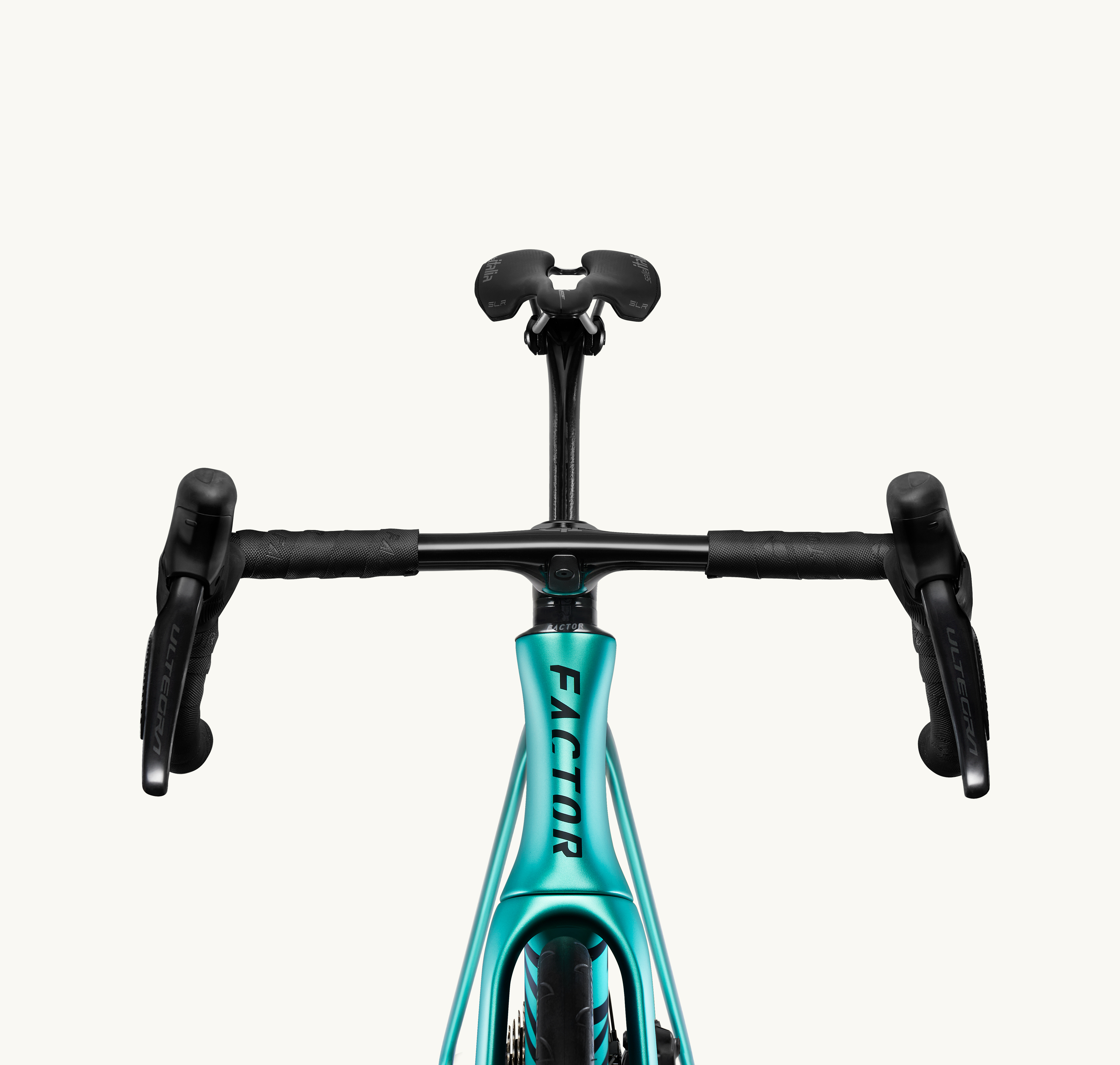Janet Street-Porter rolls out all the old anti-cycling clichés in latest Daily Mail column
From running red lights to ‘refusing to wear helmets' – another media personality opts for tired stereotypes

Cyclists wait at a red light in London (Photo by Dan Kitwood/Getty Images)

Every few months a newspaper columnist short on inspiration decides to jump on the anti-cycling bandwagon in an attempt to rile up some division.
The most recent edition to this anthology of unhelpful rhetoric is media personality Janet Street-Porter, who has opened a Pandora’s box of tired old anti-cycling clichés in her latest piece.
Writing for the Mail Online, Street-Porter has opted to play cycling falsehood bingo, because apparently there is nothing more important going on in the world to write a column about.
The piece, titled ‘If cyclists don’t want to be ‘dehumanised’ they could start behaving like decent human beings.’
After opening the 1,000 amble decrying “militant vegans,” gender identity, and Muslim women wearing veils – the Holy Trinity for anti-PC, free speech obsessed newspaper columnists – Street-Porter tucks into the main course of the piece, us.
>>> Watch moment rider stops to help rival caught in crash at Three Days of De Panne 2019
The trigger for this snowflake-esque tirade is a recent study carried out by researchers at Monash University, the Centre for Accident Research and Road Safety and the University of Melbourne, found that more than half drivers think that cyclists are not “completely human.”
Get The Leadout Newsletter
The latest race content, interviews, features, reviews and expert buying guides, direct to your inbox!
While this revealing statistic may be no surprise to cyclists, news organisations from around the world opted for a slightly different angle in their reporting.
Co-author of the study Narelle Haworth said that the word ‘cyclist’ may contribute to the hostility riders face, and suggested people to talk about ‘people who ride bikes instead.’
But in the hunt for a good headline, these comments were reported as calls for a ‘BAN’ on the word cyclist.
Of course this reporting is disingenuous – no-one called for the word cyclist to be banned and it would be impossible even if someone had.
The crux of Street-Porter’s evidence-free opinion as that cycling “has become (like veganism) a modern religion.”
She goes on to say that cycle lanes cause traffic jams, cyclists “use pavements whenever it suits them and routinely ignore traffic lights.”
Another point of hostility is the online abuse aimed at those who criticise cyclists, which I of course condemn along with all other online abuse. Please, don’t do that.
What Street-Porter fails to take into consideration when bubbling into another enraged cyclist hater is facts.
The study into attitudes towards cyclists found that 17 per cent of drivers are deliberately hostile to riders, while the dehumanisation of people on bikes may lead them to act out against drivers.
As the lead author of the study, Dr Alex Delbosc said: “When you don’t think someone is ‘fully’ human, it’s easier to justify hatred or aggression towards them. This can set up an escalating cycle of resentment.
“If cyclists feel dehumanised by other road users, they may be more likely to act out against motorists, feeding into a self-fulfilling prophecy that further fuels dehumanisation against them.
“Ultimately, we want to understand this process so we can do a better job at putting a human face to people who ride bikes, so that hopefully we can help put a stop to the abuse.”
>>> Niccolò Bonifazio warns amateur riders not to imitate his daredevil Milan-San Remo descent
Another interesting set of statistics were published by the AA this week, which found that 65 per cent of drivers think that cyclists “appear from nowhere.”
This may be connected to the fact that failing to look is the most commonly cited factor in road crashes, contributing to 39 per cent of injury collisions in 2017.
Cyclists are among the most vulnerable road users, while being relatively unlikely to cause a road casualty – this is supported by the evidence.
People on bikes and motorcyclists are far more likely to be injured or killed based on the number of miles travelled.
Cars are also far more dangerous to other road users – of the 448 pedestrians killed by a vehicle in 2016, three were caused by cyclists compared to 289 by cars.
There are also plenty of benefits to cycling – improved mental health, reduced risk of heart disease and cancer, and the environmental impacts being just a few.
But of course, a good newspaper columnist would never let facts get in the way of an opportunity to divide.
The irony in all of this is that many cyclists are drivers and many drivers are cyclists – after all “there is more that unites us than divides us.”

Thank you for reading 20 articles this month* Join now for unlimited access
Enjoy your first month for just £1 / $1 / €1
*Read 5 free articles per month without a subscription

Join now for unlimited access
Try first month for just £1 / $1 / €1
Alex Ballinger is editor of BikeBiz magazine, the leading publication for the UK cycle industry, and is the former digital news editor for CyclingWeekly.com. After gaining experience in local newsrooms, national newspapers and in digital journalism, Alex found his calling in cycling, first as a reporter, then as news editor responsible for Cycling Weekly's online news output, and now as the editor of BikeBiz. Since pro cycling first captured his heart during the 2010 Tour de France (specifically the Contador-Schleck battle) Alex covered three Tours de France, multiple editions of the Tour of Britain, and the World Championships, while both writing and video presenting for Cycling Weekly. He also specialises in fitness writing, often throwing himself into the deep end to help readers improve their own power numbers. Away from the desk, Alex can be found racing time trials, riding BMX and mountain bikes, or exploring off-road on his gravel bike. He’s also an avid gamer, and can usually be found buried in an eclectic selection of books.
-
 Factor launches it’s new Monza: a cheaper more practical bike, designed to fit more racers
Factor launches it’s new Monza: a cheaper more practical bike, designed to fit more racersFactor's new Monza, promises more bang for buck, for more people, without losing the character that makes the OSTRO VAM one of the highest performance bikes on the World Tour
By Luke Friend
-
 'It took everything' - Puck Pieterse outclimbs Demi Vollering to win La Flèche Wallonne
'It took everything' - Puck Pieterse outclimbs Demi Vollering to win La Flèche WallonneDutch 22-year-old shows Classics pedigree with first one-day victory
By Tom Davidson